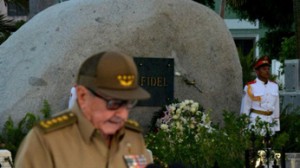Delhi, 27 Nov (Indrajit Bose) — The Board of the UNFCCC’s Green Climate Fund (GCF) approved with conditions, USD 1.1 billion for 16 funding proposals at its 27th meeting held virtually from 9-13 November. Three funding proposals from Burundi, Sudan and Nicaragua were approved through a vote due to objections by United States (US) to the projects.
The Board also adopted the Updated Strategic Plan (USP) for the Fund for 2020-2023, after lengthy deliberations over several divergences (separate article to follow).
Besides the USP, other contentious issues that emerged included the 9th report of the GCF to the UNFCCC’s Conference of the Parties (COP); Review of the Multilateral Organisation Performance Assessment Network (MOPAN); and the work programme and budget of the Independent Evaluation Unit, among others.
Funding Proposals
The Board approved the following funding proposals:
• USD 23.1 million for ‘Improving adaptive capacity and risk management of rural communities’ in Mongolia, with United Nations Development Programme (UNDP) as the accredited entity (AE). The project aims to strengthen the resilience of resource-dependent herder communities in four provinces vulnerable to climate change;
• USD 82 million for Argentina’s REDD-plus (reducing emissions from deforestation and forest degradation) results-based payments (RBP) for results period 2014-2016, with the Food and Agriculture Organization (FAO) as the AE. Argentina will use the proceeds from the RBP to support the implementation of its nationally determined contributions under the Paris Agreement and its National Action Plan on Forests and Climate Change;
• USD 99.5 million for Brazil’s ‘Planting climate resilience in rural communities of the northeast’ (PCRP) with International Fund for Agricultural Development (IFAD) as the AE. The project proposes to build the resilience of the most vulnerable and the poorest farmers in the semi-arid region of northeast Brazil, by transforming family farmers’ productive systems into low-emission and climate-resilient agriculture;
• USD 54.2 million for Costa Rica’s REDD-plus RBP for 2014 and 2015 with UNDP as the AE. Costa Rica is expected to use the proceeds from the RBP to invest in the implementation of its Forestry Law, among other activities under the project;
• USD 29.8 million for Guatemala’s project on ‘Resilient livelihoods of vulnerable smallholder farmers in the Mayan landscapes and the dry corridor’ with FAO as the AE. The project proposes to build the resilience of the most vulnerable farmers through a range of activities such as climate-resilient adaptation practices and gender-sensitive technology packages; restoring watershed areas; providing technical support to women to access national forest incentives;
• USD 64.1 million for a project in Nicaragua called ‘Bio-CLIMA: Integrated climate action to reduce deforestation and strengthen resilience in BOSAWÁS and Rio San Juan Biospheres’ with the Central American Bank for Economic Integration (CABEI) as the AE. The project aims to restore degraded forest landscapes in the most biodiversity rich region of Nicaragua and channel investments into sustainable land-use management and forest management;
• USD 47.4 million for ‘Enhancing climate information and knowledge services for resilience’ in 5 island countries of the Pacific Ocean with United Nations Environment Programme (UNEP) as the AE. The 5 island countries include Cook Islands, Niue, Palau, Marshall Islands and Tuvalu;
• USD 30 million for a project on ‘Participation in Energy Access Relief Facility (EARF)’ with Acumen as the AE. The EARF is a concessional debt fund intended to provide energy access companies with liquidity in the form of low-interest, unsecured junior loans. The countries involved include the Democratic Republic of the Congo, Kenya, Mozambique, Nigeria, Rwanda, Senegal, Sierra Leone, Uganda and Zambia;
• USD 100 million for ‘Green Climate Financing Facility for local financial institutions’ in Latin-America, with Corporación Andina de Fomento (CAF) as the AE. The objective of the programme is to reduce greenhouse gas emissions in Latin America through locally financed and developed climate change projects for micro, small and medium enterprises in the renewable energy, energy efficiency and land use sectors. The countries involved are Chile, Ecuador, Panama and Peru;
• USD 256.5 million for ‘Promoting private sector investment through large-scale adoption of energy saving technologies and equipment for textile and readymade garment sectors’ in Bangladesh with Infrastructure Development Company Ltd. as the AE. The programme provides concessional financing for textile and readymade garment manufacturers, and technical assistance to create an enabling environment through capacity building, awareness raising, policy development and support in loan disbursal and monitoring and evaluation of the programme parameters;
• USD 18.5 million for a ‘Technical Assistance (TA) Facility for the Global Subnational Climate Fund (SnCF Global)’ with International Union for Conservation of Nature (IUCN) as the AE; and USD 150 million for the ‘SnCF Global-Equity’, with Pegasus Capital Advisors as the AE. The goal of the SnCF Global is to catalyze long-term climate investment at the sub-national level for mitigation and adaptation solutions through a transformative financing model in multiple countries across Africa, Asia-Pacific, Latin America and the Caribbean, and Mediterranean regions;
• USD 26.7 million for the Mongolian Green Finance Corporation (MGFC) with XacBank as the AE. The programme will establish MGFC to on-lend through local partner financial institutions for thermal insulation of housing, energy efficiency for businesses and mortgages for green affordable housing;
• USD 9.9 million for ‘Climate proofing food production investments in Imbo and Moso basins’ in Burundi with IFAD as the AE. The project’s objective is to build farmers’ resilience to climate change and increase agricultural productivity and food security through the adoption of better agroecosystem management practices to conserve soil and water resources;
• USD 10 million for ‘Enhancing climate information systems for resilient development’ in Liberia with the African Development Bank as the AE. The project aims to increase the resilience of Liberia’s population and infrastructure through improved hydrometeorological service generation and provision; improved risk knowledge and awareness of government institutions and communities; mechanisms to better prepare and respond to climate hazards; and
• USD 9.9 million for ‘Gums for adaptation and mitigation in Sudan (GAMS)’ to enhance the adaptive capacity of local communities and restore the carbon sink potential of the Gum Arabic belt, with FAO as the AE.
In relation to the Sudan project, US Board member Mathew Haarsager said that even though the project was laudable, he was required to oppose the project due to legislation as regards support for international terrorism concerns. The US opposed the Burundi and Nicaragua projects saying that its objections were consistent with the Congressional mandate to oppose funding to countries that did not address trafficking in humans. Several other members raised questions over the Nicaragua project, which centred around implementing GCF’s standards, oversight and monitoring as well as stakeholder consultations. Relevant conditions were imposed prior to the project’s approval.
The Board also approved accreditation of 4 entities to the Fund, of which 3 are direct access entities. The entities accredited were:
• ‘Kemitraan bagi Pembaruan Tata Pemerintahan’ (Partnership for Governance Reform) from Indonesia;
• ‘National Trust for Nature Conservation’ (NTNC) from Nepal;
• ‘KCB Bank Kenya Ltd’ from Kenya; and
• ‘Camco Management Ltd’, an international entity based in the United Kingdom (UK).
Report to the COP
There was considerable discussion on the 9th report of the GCF to the forthcoming UNFCCC COP next year. Two issues emerged, viz. as regards policy gaps of the GCF and a section dealing with ‘loss and damage’ (experienced by developing countries due to climate change impacts) in the report.
Developed countries led by Sweden, France and supported by Germany raised issues around the Board being responsible for the delay in approving its policies.
Ayman Shasly (Saudi Arabia) said the Fund did not have policy gaps, but that it was trying to improve these policies. “We were pushing back on addressing policy matters because we are in virtual setting, unable to link and consult with each other,” he said, adding further that the agreement was to look at funding and accreditation proposals and policies that enjoyed consensus, given the limitations of negotiating in a virtual setting. He called on the Board to acknowledge 2020 as a unique year given the COVID-19 pandemic.
Karma Tshering (Bhutan) said he did not agree with the assessment that the GCF was an inefficient Board. He said that for many developing country colleagues, the GCF was an additional task (besides their regular work responsibilities in their counties) and if some Board members wanted to take the blame for failing to approve policies, they could do so individually, rather than blaming the entire Board collectively.
Co-Chair Nauman Bashir Bhatti (Pakistan) also responded to the concerns expressed and gave a factual overview of policy matters. “This has been a challenging year and despite the COVID situation, we have intensely engaged in making consultations on a number of policy documents. As part of the Co-Chairs’ consultation plan, we had 42 documents for the year. Of the 42, 14 documents have been approved by the Board; consultations for 13 documents have not yet concluded; and 13 documents are either with the (GCF’s) committees, independent units or the Secretariat,” explained Bhatti.
On the issue of loss and damage, Heike Henn (Germany) referred to a particular paragraph in the report which stated that the GCF is mandated to provide support for the implementation of Article 8 of the Paris Agreement on loss and damage, and said that this required further discussion.
(The para concerned read: ‘In UNFCCC decision 1/CP.21, paragraph 58, adopting the Paris Agreement, the UNFCCC COP decided that [the] GCF would serve as an operating entity of the Financial Mechanism of the Paris Agreement. Through this decision, [the] GCF is mandated to provide support for the implementation of, among other things, Article 8 of the Paris Agreement which deals with loss and damage’.)
Mathew Haarsager (US) also referred to the paragraph and said that the second sentence should be removed. He added that “the decision on the GCF serving as an operating entity of the financial mechanism of the PA does not confer any substantive mandates on GCF’s policy and programming priorities”, and therefore, the report from the GCF to the COP should not imply there is an additional mandate.
He also referred to another paragraph which quoted a COP decision and wanted also the addition of a reference to recommendations by the Conference of the Parties to the Paris Agreement (CMA).
The sentence in issue initially read as follows: ‘Further to this, the COP at its 25th session (COP 25) invited the GCF Board to “continue providing financial resources for activities relevant to averting, minimizing and addressing loss and damage in developing countries to the extent consistent with the existing investment, results framework and funding windows and structures of the GCF, and to facilitate efficient access in this regard, and in this context to take into account the strategic workstreams of the five-year rolling work plan of the Executive Committee of the Warsaw International Mechanism for Loss and Damage (WIM) associated with Climate Change Impacts.’
The US requested “a clarifying edit” to the first sentence and wanted the addition of the words ‘CMA’ in it and proposed the following: “Further to this, the COP at its 25th session (COP 25), following the recommendations of the CMA at its second session, invited the GCF Board to…”. The US said it is important to clarify the relationship between the two entities (referring to the COP and the CMA). (Emphasis added for clarity).
(The US concerns issue relates to the governance of the WIM that was very contentious at COP 25 in Madrid, with developing countries positing that the WIM is subject to the joint governance of both the COP and the CMA, whereas developed countries were of the view that the WIM was exclusively under the authority of the CMA and not the COP. See related update for more details.)
Board members from Tanzania, Belize, Bhutan and Saudi Arabia however supported the report as presented and were concerned about the changes proposed. Following further discussions, Co-chair Bhatti proposed that consultations be carried out by the Secretariat on the matter. The document could not be presented back to the Board in time for the meeting’s closing, and no decision was taken on the matter.
Review of MOPAN
Another contentious issue was the ‘Review of the Multilateral Organisation Performance Assessment Network (MOPAN)’. (The MOPAN was launched in 2002 as a network of like-minded donor countries for monitoring the performance of multilateral development organisations at the country level. The network members include Australia, Belgium, Canada, Denmark, Finland, France, Germany, Ireland, Italy, Japan, Luxembourg, Netherlands, Norway, Republic of Korea, Sweden, Switzerland, the United Arab Emirates, the UK and the US).
(At the previous Board meeting, the agenda item was opened but discussions had not concluded, as it was contentious, as some developing country Board members had chanced upon information of the GCF’s assessment by MOPAN, they did not want any such assessment to take place without the prior knowledge and approval by the Board.)
During the discussions, developed countries led by Canada and US and supported by other developed country Board members espoused the benefits of MOPAN as an organization and called for an information session to be convened in relation to the proposed assessment. Developing country Board members however clarified that the issue was not about the substance of the matter but was about the procedure, as the Board should have been informed of plans for any assessment of the GCF in advance.
Shasly (Saudi Arabia) stressed that the Secretariat could not commit to an external organization for evaluation of the Fund, which was the prerogative of the COP. He stressed that his constituency was requesting the Secretariat to stop the assessment process and for the GCF’s Executive Director to send a letter to MOPAN to tell them the GCF is not ready for the assessment. The gaps in the process followed by the Secretariat were also highlighted by Board members from Egypt and Liberia.
Co-Chair Bhatti said that the views and the guidance of the Board would be made part of the report of the session and the ED should take into account the views and concerns expressed. The agenda item on the MOPAN issue was then closed.
Work programme and budget of IEU
In relation to the work programme and budget of the GCF’s Independent Evaluation Unit (IEU), Egypt expressed concern over the number of evaluations proposed per year and said that instead of the 5 evaluations proposed for next year, which would amount to 20 evaluations in the replenishment period (2020-2023), the number should be reduced to 2 to 3 per year.
The Board approved the work plan and budget of the IEU for 2021 as is, with the caveat that it “agrees to further consider the matters, including written comments…raised by Board members in the consideration of this matter.”
Election of Co-chairs
Developing country constituency announced that Ms. Brenda Ciuk Cano (Mexico) will be the Co-Chair for the next year and from the developed country constituency, France said it would nominate a representative for Co-Chairship.
– Third World Network




